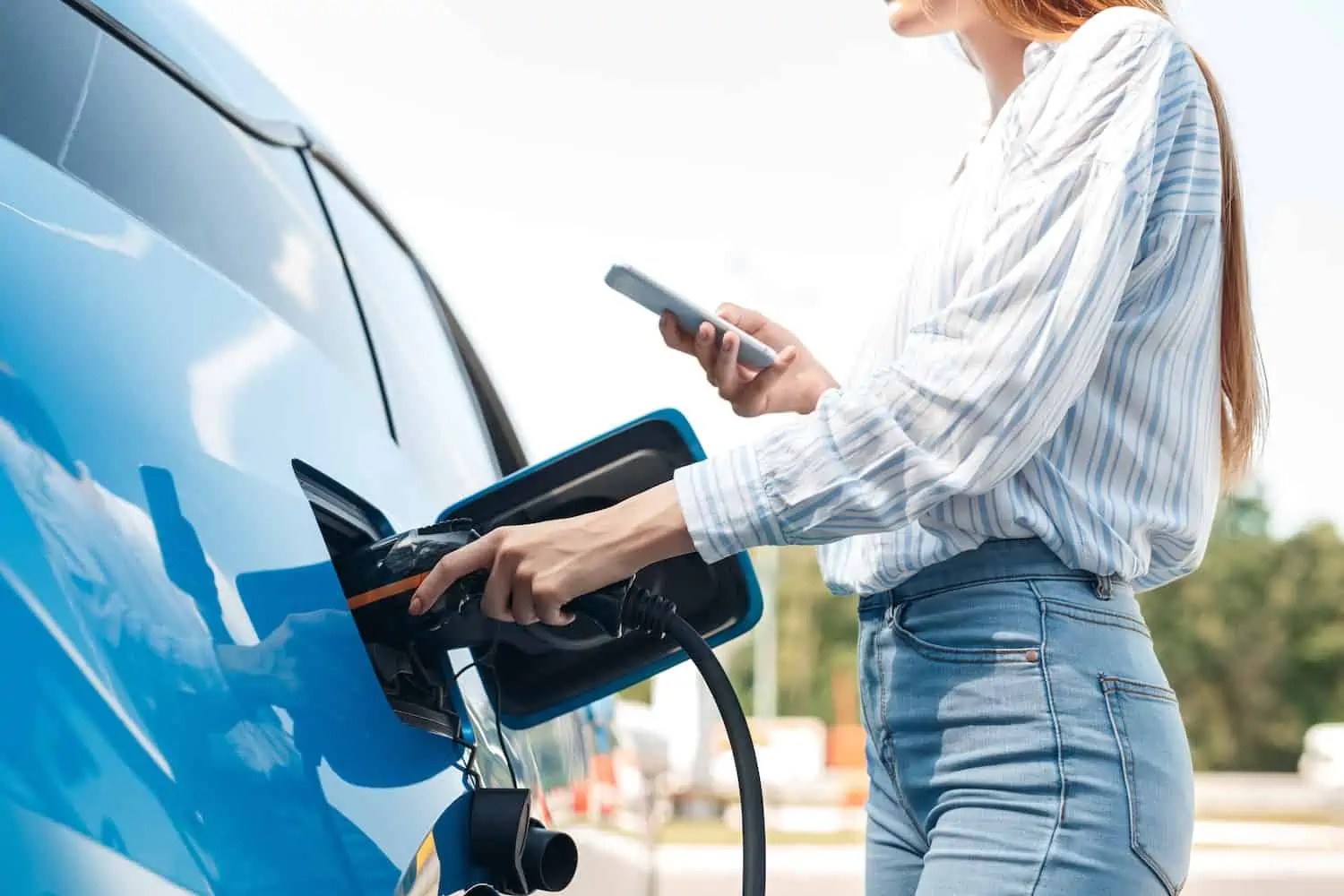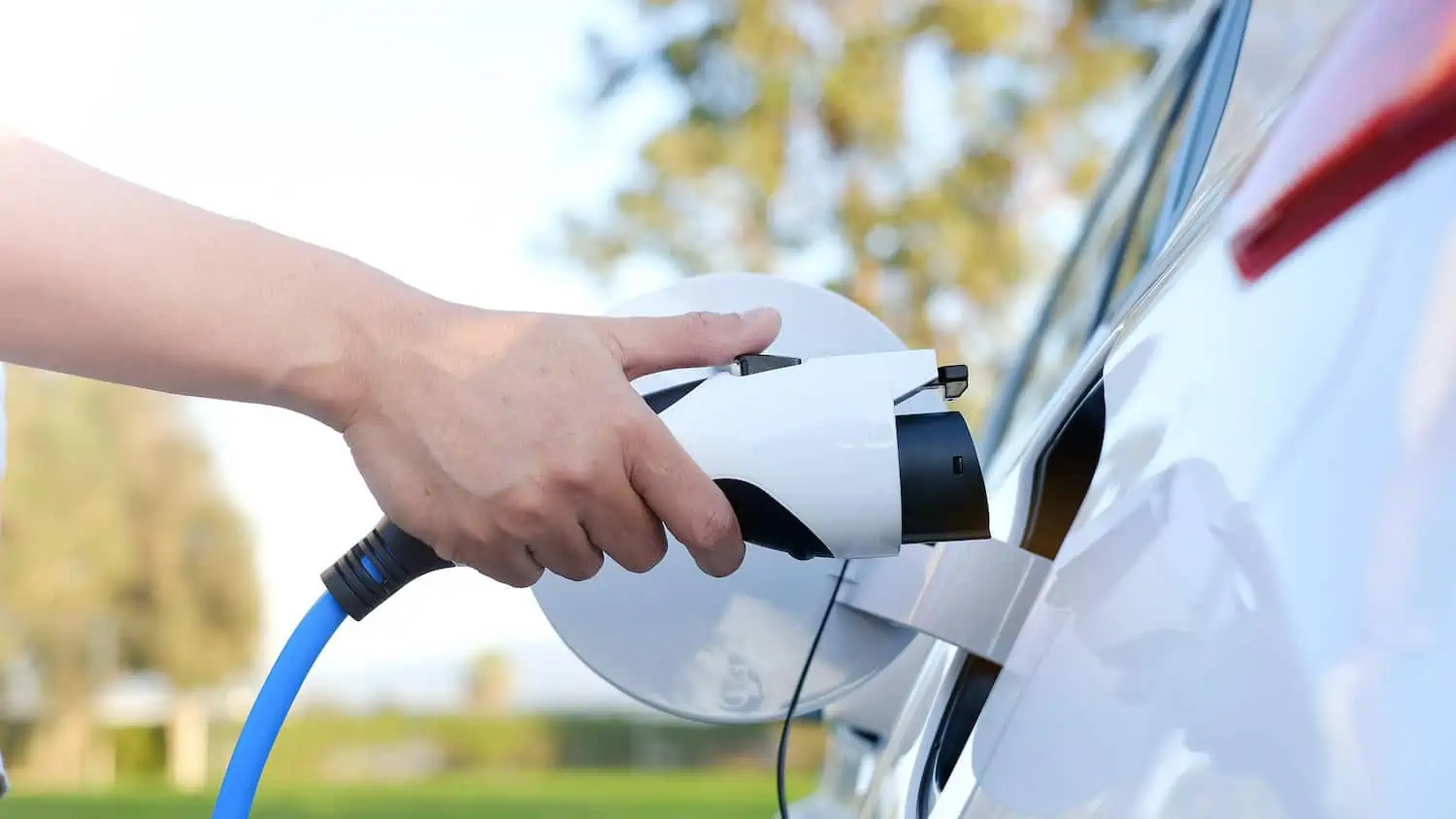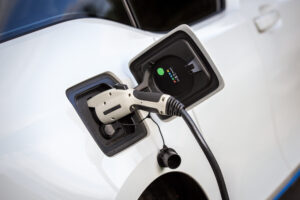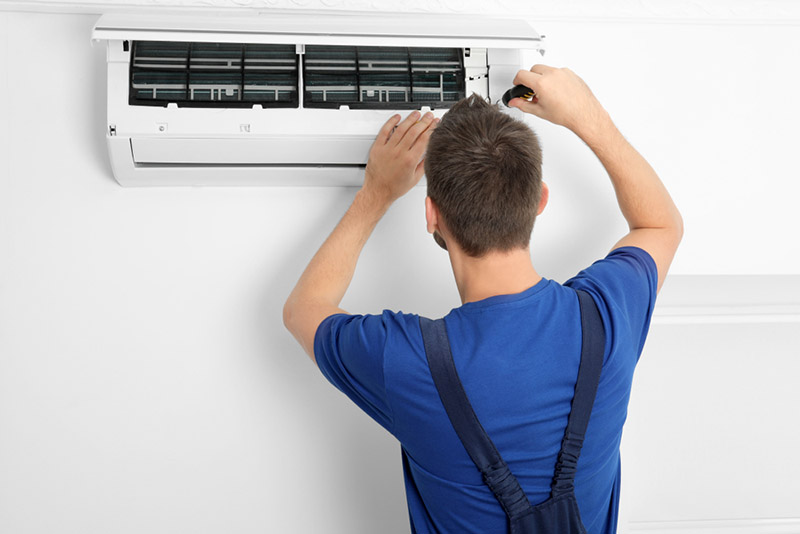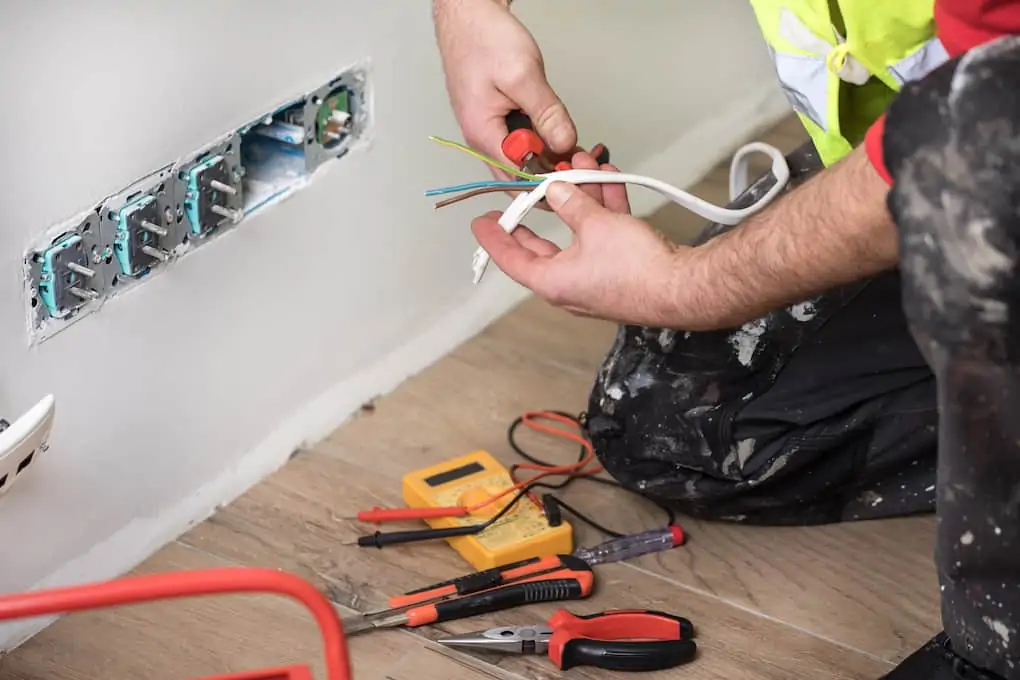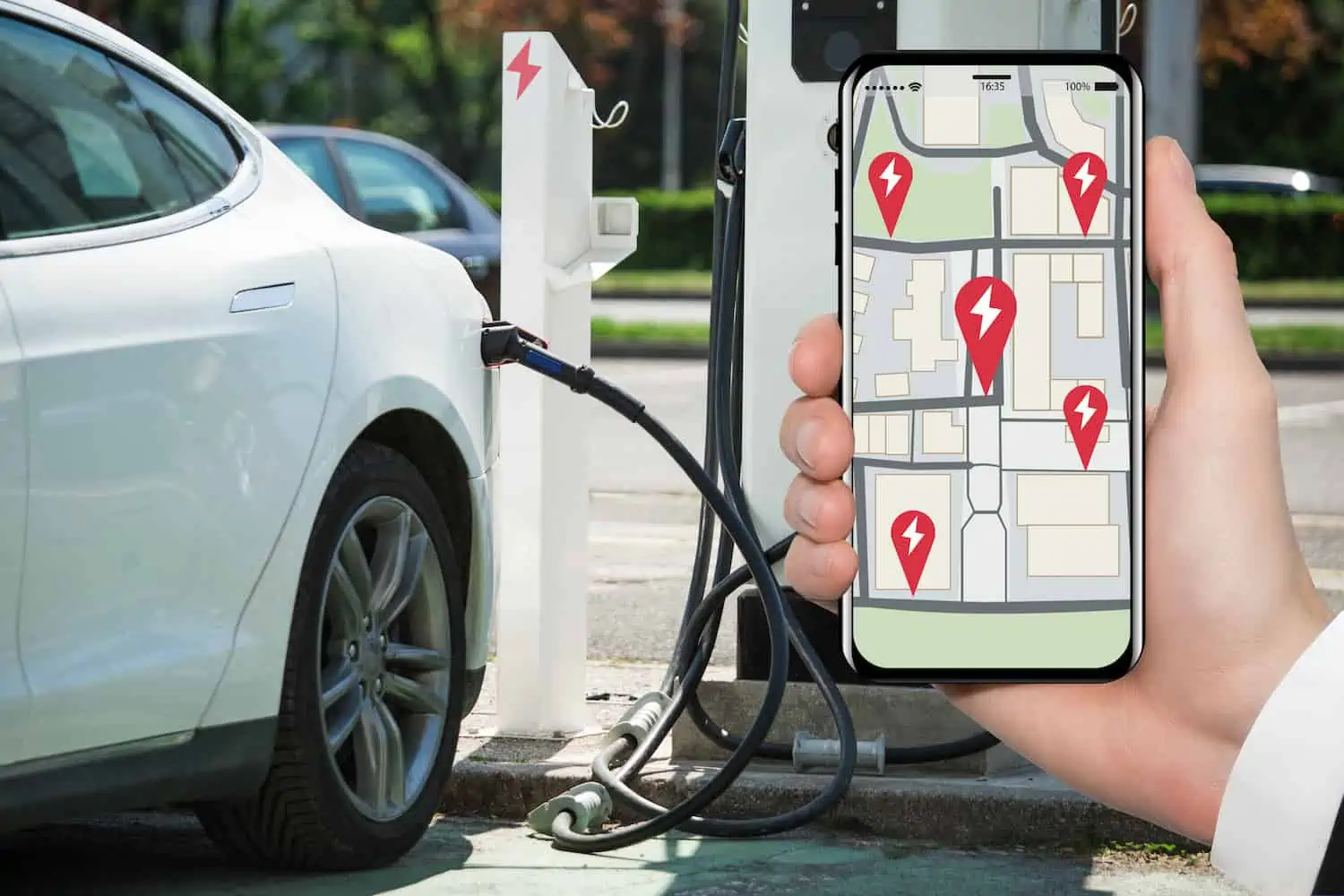
Purchasing an electric vehicle means you’re moving away from filling up with gas, and rather charging up your vehicle with electricity. But with that, comes some complications and you may be asking yourself:
-
How accessible is EV charging on the road?
-
How much does EV charging cost?
-
How far can I go on a charge?
A few years ago, finding an electric vehicle charger on the road may have been hard to come by, but now with over 113,000 charging stations across the U.S., you won’t be left stranded. But the cost is always a factor and people may want to know where the closest FREE electric vehicle charging stations might be. And yes, they exist, if you know where to look!
How Much Does it Cost to Charge at a Public EV Charging Station?
If you purchased an electric vehicle to save money at the pump, you may be left wondering how much this is going to cost you.
The average cost to charge a vehicle at a public EV station is around $0.30- $0.60 kWh. This means to fully charge an electric vehicle ranges from $11 to $50. But this overall cost can vary widely based on a number of factors.
The MPGe of Your Vehicle
The mileage of electric cars is measured in MPGe or miles per gallon equivalent where 1 gallon of gasoline = 33.7 kWh (kilowatt-hours). And since charging stations charge per kWh, you can do some simple math to determine how much it will cost to “fill” your vehicle.
Let’s use the Tesla Model 3 as an example. The Tesla Model 3 is rated to travel approximately 350 miles on one charge. 350MPGe is the equivalent of 10.384216 mi/kWh. And since the Tesla Model 3 has a 57.5 kWh battery, to fully charge it will cost you anywhere from $17.25 to $34.50.
That was 57.5 multiplied by the average costs of charging stations. So to go 350 miles, you can pay as low as $17.25. And in a world where gas is toppling $4/gallon, that’s some major savings.
The Type of Charger (Level 1, 2, or 3)
There are 3 different types of EV chargers you’ll find:
Level 1 charger- This is the standard 120-volt outlet that you find in your home. It’s the slowest way to charge your vehicle, taking 8-12 hours to fully charge.
Level 2 charger- This is a 240-volt charger similar to what’s used for your clothes dryer or oven. It can charge your vehicle 4-6 times faster than a level 1 charger.
Level 3 charger- Also called a DC fast charger, this is the most powerful option and can charge your vehicle up to 80% in 30 minutes.
Chances are, you’ll mostly find level 2 and level 3 chargers out on the road. And the faster the charge, the more costly the EV charger may be. Most hotel chains or gas stations will feature a level 2 charger, so you can expect the mid-range costs for those.
The Frequency of Long-Distance Travel
If you find yourself frequently traveling long distances, you’re going to want to consider investing in a level 3 charger for your home so you can quickly charge up before venturing out. Essentially, this will cut down on the time you spend waiting to charge up your vehicle and get back on the road.
Frequent drivers should also seek out at least level 2 chargers while on the road using apps like PlugShare and EVgo. There are also some companies that offer subscription-based fast charging which may be beneficial for those who frequently travel long distances.
The Cost of Electricity
The price of electricity varies depending on where you live, so traveling across state lines can also affect how much or how little you might pay at a public charging station. For example, the average cents per kWh or electric rate in Minnesota is 13.17, but our neighbors in North Dakota have a rate of just 9.64 cents/kWh.
Overall, it can be highly beneficial to do a few things:
-
Invest in a fast charger at home so you can always have a full battery (and save money).
-
Seek out free EV charging stations.
When Might Electric Vehicle Chargers Be Free?
Electric vehicle chargers don’t always charge a fee to use. There are a few situations where they might be free, including:
-
College campuses
-
Whole Foods or Target
-
Energy-focused businesses
-
Certain gas stations or visitor centers
-
Car dealerships
-
National parks
You can also get free charging on certain days of the year like Earth Day, and Tesla owners can often get free charging on holidays.
While it can cost money to charge your electric vehicle, there are ways to get around it. And as the technology improves, we can only expect the costs of charging an electric car to go down. Many EV owners can benefit from unlimited memberships through ChargePoint or Blink Charging with incentives such as points systems or tax rebates.
How to Find Local Free EV Charging Stations
It’s possible to find free charging stations in a few ways. The most common is through apps like PlugShare, ChargePoint, and Recargo. You can use these apps to find stations near you that may be free to the public or may require a membership fee.
Additionally, some workplaces offer employee EV charging as an incentive to go green. You might have good luck at hotel chains, certain gas stations, and big-box stores like Target and Walmart. These can also pop up on any of those apps where you can plan out your trip to swing by one of these stops.
To find a local EV charging station, any of the following apps are super useful for finding stations on the go:
Chargemap
Chargemap allows drivers to find nearby stations, set their route, and see costs. It’s also collaborative so users can update info on charging stations such as ones that are out of order.
ChargePoint
ChargePoint is the largest charging station database across the United States and is compatible with dozens of other applications. You can also pay for a charge just by holding the app up to the station.
ChargeHub
ChargeHub finds just about every charging station in Canada and the United States in a live-updated map.
EVgo
With EVgo, electric vehicle owners can get real-time results, monitor their charging session, reserve chargers, and collect rewards just for charging their car.
EVHotels
If you’re someone who goes on a lot of road trips or travels for work, EVHotels is a critical app to have. Easily locate nearby hotels with EV chargers.
EVmatch
EVmatch can filter by charging speed, availability, and price. Users can even reserve a charger when in a rush.
Plugshare
Plugshare offers filters such as station availability, charger type, brand, speed, and etc.
Most of these apps will allow users to simply search or filter by cost— aka FREE. In fact, according to PlugShare, there are over 400 free charging stations in the U.S. right now. They have a specific map just for those free stations— talk about convenience!
Other Ways to Save Money on EV Charging
In addition to using free EV charging stations, there are a few other ways you can save money when it comes to driving an electric car.
-
One is to invest in your own home charger. This allows you to always have a full battery without having to leave the house.
-
Use your electric vehicle federal tax rebate towards your EV charging fees. You could go years without paying out of pocket for your EV charging.
-
Only find free chargers while out on the road.
-
Charge your vehicle every night during non-peak hours.
-
Drive slower. Electric vehicles may use far less energy to power your vehicle on city roads vs. high speeds on the highway. So take the scenic route on your road trip!
Getting an EV Charger Installed At Home
If you live in an apartment or condo, the easiest way to always have a full battery is to get a parking spot close to the parking lot chargers. But if you own your home, installing an EV charger in your garage can be a big investment upfront, but the savings long-term are a no-brainer.
Some cities offer rebates for installing an EV charger at home. Check with your city officials about any opportunities available in your area.
But ultimately, working with a professional team like 4Front Energy ensures you get a quality installation of your home EV charger. Plus, partnering with Blink means we can offer homeowners some of the best and most efficient EV chargers on the market. If you’re interested in investing in a high-performing EV charger, contact us today!

